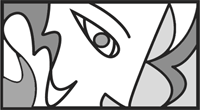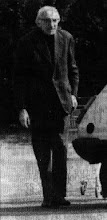In an essay on Wittgenstein’s later philosophy, Stanley Cavell raises the question of what rule-following is for Wittgenstein. He notes, amongst other things, that in those activities which could be said to proceed according to rules the activity is not (could not be) ‘everywhere circumscribed by rules’ (PI, sec 68). As Espen Hammer puts the point, rules do not circumscribe every aspect of a meaningful activity or speech act. There must always be projections of words to which it is not clear whether rules apply or not. (Consider here, for example, Wittgenstein’s discussion of secondary sense and aspect seeing.) again, every rule-following activity takes place against the background of innumerable other activities. These include taking and giving directions, obeying orders, and so on. As Cavell makes clear, these considerations suffice to show that the concept of a rule does not exhaust the concepts of correctness or justification: indeed, the concept of a rule would have no meaning unless these other concepts were already in place, and were possessed of meaning.
More significantly, no specification of rules can ever explain what playing a game amounts to. Playing a game is ‘a part of our natural history’ (PI, sec 31), and until one has become an initiate of this form of life, this human form of activity, the citing of a rule can mean nothing. Many of our games can be learnt without ever learning or formulating rules, so that linguistic normativity does not involve the strong conception of inference and implication one finds in logical and mathematical systems. Again, language has no essence. There is nothing common to all games: they exhibit rather what Wittgenstein called family resemblances. For Wittgenstein, following a rule is just as much a practice as playing a game. Now, Cavell asks, what are its rules? There is typically no rule for following a rule. And yet following a rule can be done correctly or incorrectly. And that means that it can be done or not done. To follow a rule correctly is just to do it. To be an initiate of these practices is to be an initiate of a form of life. For Cavell, human speech and activity, sanity and community, rest upon nothing more, but nothing less than this. (Similar views may be found in such readers of Wittgenstein as Rush Rhees, Cora Diamond, James Conant, Rupert Read, James Guetti, Michael Kremer and Denis McManus, amongst a number of others.)
These considerations are of little significance to Badiou. He lists Wittgenstein high amongst the ‘sophists’ of the modern period, and in his fairly extensive writings on Wittgenstein he does not consider the kinds of question I raise here. (It is noteworthy that he does not refer to the work of Anglophone commentators on Wittgenstein; for instance, in his reading TLP he adheres to the traditional ‘ineffabilist’ account, and is oblivious to what may be called the ‘resolute’ reading of that text.) Badiou’s fundamental claim, that mathematics is ontology, aims precisely at the elimination of language from philosophy and at the overcoming of the ‘linguistic turn’. However, Cavell’s remarks on rule-following are not so easily dismissed, and any assessment of Badiou’s position (an assessment external to Badiou's own assessment of his achievement, that is) would need to consider them. The pertinence of Cavell's remarks may be seen when they are placed in relation to one of Zizek’s most telling criticisms of Badiou: ‘Against Badiou, one should insist that only to a mortal/finite being does the act (or Event) appear as a traumatic intrusion of the Real….Badiou remains blind to how the very space for the specific “immortality” in which human beings can participate in the Truth-Event is opened up by man’s unique relationship to his finitude and the possibility of death’. The implications of this last comment accord with what is already evident in Cavell's account of rule-following: the notion of a transcendent/ideal position such as that from which Badiou seeks to lay out an ontology is highly problematic. The elaboration of such a position is not to be characterised as an elaboration of the 'impossible': the idea is in fact nonsensical. (This, obviously enough, does not commit Cavell, or Wittgenstein, to relativism, post-modernism, or any of the other sins Badiou discerns in contemporary thought.) Hilary Putnam has written: 'There is always a cut between the observer's language and the totality of languages he generalizes over. The "God's-Eye View"--the view from which absolutely all languages are equally part of the totality being scrutinized--is forever inaccessible'.
Part of what I am saying can be placed in relation to what in Jean-Toussaint Desanti’s ‘remark’ on Badiou’s ‘intrinsic ontology’ touches on the question of the margin. Inasmuch as Badiou’s ontology is intrinsic, that is, concerned with being as being, it articulates itself in terms of ZF set theory. The margin is that which intrinsic ontology excludes by definition, and which it cannot recuperate. Desanti sees the margin as never silent. It is that which inscribes itself upon itself (marks itself), and is organised into a series of ‘writings’. The term has considerable resonance in French thought after Derrida, and Desanti draws on those connotations here: ‘I call writing anything which, as it is produced, leaves a trace’. He gives what he calls a ‘baroque’ list of examples, such as a falling leaf, a natural catastrophe, an utterance, an assassination, theft by a pickpocket, and so on. The obvious example he does not mention, that of a continuous line drawn between two points, but this is in effect the example that colours his discussion. Such a line is, obviously enough, the continuum, which cannot ultimately be defined by set theory.
The point of all this is to make it clear what Desanti means by a margin. He sees it as the writing of an excess (he italicises the word) which, he says, is not necessarily coordinated, though it is ‘susceptible to a localized coordination in the fragile wake left by some of its assemblages’. He gives no further clarification as to what he means, but perhaps one might think of the wreckage left behind in the wake of a hurricane. The fragile wreckage may be said to coordinate what has passed, in the sense that one can gauge the force of the passing of the storm from the detritus it has left behind. To draw on another idiom, though one not without relevance here, the margin is comparable, one might think, to the enunciation of the enounced, the uttering of the utterance. However, in set theory, which is itself a writing, the excess engendered by it must be recuperated back into the theory or else be excluded. Desanti concludes that ontological thought is therefore caught in the tension that binds these two writings together. Its task consists, he says, in trying to rewrite what is written in the margin and in capturing its excesses (an example being Cohen’s work on the continuum hypothesis). The margin can neither be abolished not excluded.
What this amounts to, I suggest, is a reworking in terms of ontology of what is given in Cavell’s account of rule-following. In other words, Cavell’s recognition of the relations between judgement and definition in the following of a rule, with its explicit recognition of what can only be called excess, is transposed here from what in Cavell’s case is a series of grammatical remarks into metaphysical statements, statements that purport to be true. A relevant example of this from Wittgenstein is the following: ‘The dangerous, deceptive thing about the idea: “the real numbers cannot be arranged in a series, or again “The set … is not denumerable” is that it makes the determination of a concept – concept formation – look like a fact of nature’ (RFM, II, sec 19, p.131). In a well-known study, Giorgio Agamben has gone to great lengths to recast the ontological/ontic distinction in terms of Benveniste’s distinction between enunciation and the enounced. The procedure there is the same: to recast what are distinctions in grammar as statements of fact, of a kind of hyper-fact.
Badiou does not seem to have escaped language. Mathematics—in his use of it—does not reach beyond language into a context free universe determined only by the offerings of ZF set theory (or now, under the influence of Desanti’s article, topos theory). What it would seem he has done is to transcode into the deliverances of set theory the structure of certain forms of language. So far from set theory escaping the toils of language, it would seem that it is to language that set theory has been brought to correspond. Language wears the trousers. Badiou would not of course deign to address any consideration of his position couched in these terms. But problems undoubtedly remain with the assumptions underpinning ontology as he presents it. (In this connection, an essay by Peter Osborne, in Radical Philosophy, 142 (March/April 2007), is to the point. I should note that objections to Osborne's position have been put by Oliver Feltham, especially in chapter 4 of his Alain Badiou: Live Theory (London, New York: Continuum, 2008). Feltham is critical of Osborne's suggestion that Badiou has transcoded certain linguistic concepts into set theory. He considers that this 'simply ignores the differences between mathematical and philosophical ideas' (p. 124). The point may rather be, however, that Badiou has simply blurred them.)
References:
Agamben, Giorgio. Language and Death, trans. Karen E. Pinkus with Michael Hardt (Minneapolis, London: University of Minnesota, 1991).
Cavell, Stanley. Must We Mean What We Say? (Cambridge: Cambridge University Press, 1989).
Desanti, Jean-Toussaint. 'Some Remarks on the Intrinsic Ontology of Alain Badiou', in Peter Hallward, ed., Think Again: Alain Badiou and the Future of Philosophy (London, New York: Continuum, 2007).
Hammer, Espen. Stanley Cavell (Cambridge: Polity Press, 2002).
The Virtues of Knowledge
7 years ago


